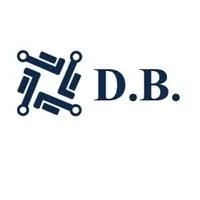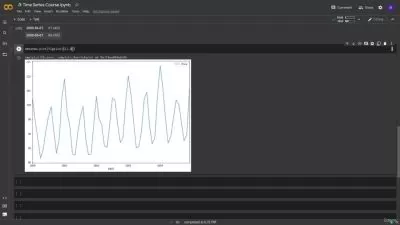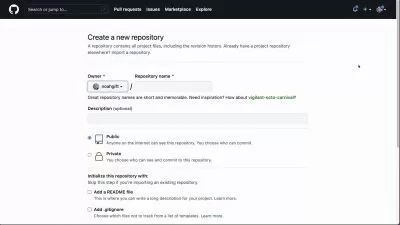Complete MLOps Bootcamp | From Zero to Hero in Python 2022
Data Bootcamp
2:12:25
Description
Advanced hands-on bootcamp of MLOps with MLFlow, Scikit-learn, CI/CD, Azure, FastAPI, Gradio, SHAP, Docker, DVC, Flask..
What You'll Learn?
- MLOps fundamentals
- MLOps toolbox
- Model versioning with MLFlow
- Data versioning with DVC
- Auto-ML and Low-code MLOps
- Model Explainability, Auditability, and Interpretable machine learning
- Containerized Machine Learning WorkFlow With Docker
- Deploying ML in Production through APIS
- Deploying ML in Production through web applications
- MLOps in Azure Cloud
Who is this for?
More details
DescriptionIf you're looking for a comprehensive, hands-on, and project-based guide to learning MLOps (Machine Learning Operations), you've come to the right place.
According to an Algorithmia survey, 85% of Machine Learning projects do not reach production. In addition, the MLOps have exponentially grown in the last years. MLOPS was estimated at $23.2 billion for 2019 and is projected to reach $126 billion by 2025. Therefore, MLOps knowledge will give you numerous professional opportunities.
This course is designed to teach everything related to MLOps, from model development, model registration, and model versioning; model performance monitoring, CI/CD, cloud deployment, model serving and APIs, and web applications development to punt into production the model.
We will guide you through the MLOps skills, sharing clear explanations and valuable professional advice.
With visual training, downloadable study guides, hands-on exercises, and real-world labs, this is the only course you'll need to learn how to implement an end-to-end MLOps project. By the end of this course, not only will you have developed an entire MLOps project from the ground up, but you will also gain the knowledge and confidence to apply these same concepts to your projects.
What does the course include?
MLOps fundamentals. We will learn about the Basic Concepts and Fundamentals of MLOps. We will look at traditional ML model management challenges and how MLOps addresses those problems to offer solutions.
MLOps toolbox. We will learn how to apply MLOps tools to implement an end-to-end project.
Model versioning with MLFlow. We will learn to version and register machine learning models with MLFlow. MLflow is an open source platform for managing the ML lifecycle, including experimentation, reproducibility, deployment, and a central model registry.
Auto-ML and Low-code MLOps. We will learn to automate the development of machine learning models with Auto-Ml and Low-code libraries such as Pycaret. Pycaret automates much of the MLOps cycle, including model versioning, training, evaluation, and deployment.
Explainability, Auditability, and Interpretable machine learning. Learn about model interpretability, explainability, auditability, and data drift with SHAP and Evidently.
Containerized Machine Learning WorkFlow With Docker. Docker is one of the most used tools to package the code and dependencies of our application and distribute it efficiently. We will learn how to use Docker to package our Machine Learning applications.
Deploying ML in Production through APIS. We will learn about deploying models to production through API development with FastAPI and Flask. We will also learn to deploy those APIs in the Azure Cloud using Azure containers.
Deploying ML in Production through web applications. We will learn to develop web applications with embedded machine learning models using Gradio. We will also learn how to develop an ML application with Flask and HTML, distribute it via a Docker container, and deploy it to production in Azure.
MLOps in Azure Cloud. Finally, we will learn about the development and deployment of models in the Cloud, specifically in Azure. We will learn how to train models on Azure, put them into production, and then consume those models.
Join today and get instant and lifetime access to:
• MLOps Training Guide (PDF e-book)
• Downloadable files, codes, and resources
• Laboratories applied to use cases
• Practical exercises and quizzes
• Resources such as Cheatsheets
• 1 to 1 expert support
• Course question and answer forum
• 30 days money back guarantee
If you are ready to improve your MLOps skills, increase your job opportunities and become a data science professional, we are waiting for you.
Who this course is for:
- Machine Learning engineers and Data Scientists interested in MLOps
- Machine Learning professionals who want to deploy models to production
- Anyone interested in developing APIs in FastAPI or Flask
- Anyone who wants to learn Docker, Azure, DVC o MLFlow
If you're looking for a comprehensive, hands-on, and project-based guide to learning MLOps (Machine Learning Operations), you've come to the right place.
According to an Algorithmia survey, 85% of Machine Learning projects do not reach production. In addition, the MLOps have exponentially grown in the last years. MLOPS was estimated at $23.2 billion for 2019 and is projected to reach $126 billion by 2025. Therefore, MLOps knowledge will give you numerous professional opportunities.
This course is designed to teach everything related to MLOps, from model development, model registration, and model versioning; model performance monitoring, CI/CD, cloud deployment, model serving and APIs, and web applications development to punt into production the model.
We will guide you through the MLOps skills, sharing clear explanations and valuable professional advice.
With visual training, downloadable study guides, hands-on exercises, and real-world labs, this is the only course you'll need to learn how to implement an end-to-end MLOps project. By the end of this course, not only will you have developed an entire MLOps project from the ground up, but you will also gain the knowledge and confidence to apply these same concepts to your projects.
What does the course include?
MLOps fundamentals. We will learn about the Basic Concepts and Fundamentals of MLOps. We will look at traditional ML model management challenges and how MLOps addresses those problems to offer solutions.
MLOps toolbox. We will learn how to apply MLOps tools to implement an end-to-end project.
Model versioning with MLFlow. We will learn to version and register machine learning models with MLFlow. MLflow is an open source platform for managing the ML lifecycle, including experimentation, reproducibility, deployment, and a central model registry.
Auto-ML and Low-code MLOps. We will learn to automate the development of machine learning models with Auto-Ml and Low-code libraries such as Pycaret. Pycaret automates much of the MLOps cycle, including model versioning, training, evaluation, and deployment.
Explainability, Auditability, and Interpretable machine learning. Learn about model interpretability, explainability, auditability, and data drift with SHAP and Evidently.
Containerized Machine Learning WorkFlow With Docker. Docker is one of the most used tools to package the code and dependencies of our application and distribute it efficiently. We will learn how to use Docker to package our Machine Learning applications.
Deploying ML in Production through APIS. We will learn about deploying models to production through API development with FastAPI and Flask. We will also learn to deploy those APIs in the Azure Cloud using Azure containers.
Deploying ML in Production through web applications. We will learn to develop web applications with embedded machine learning models using Gradio. We will also learn how to develop an ML application with Flask and HTML, distribute it via a Docker container, and deploy it to production in Azure.
MLOps in Azure Cloud. Finally, we will learn about the development and deployment of models in the Cloud, specifically in Azure. We will learn how to train models on Azure, put them into production, and then consume those models.
Join today and get instant and lifetime access to:
• MLOps Training Guide (PDF e-book)
• Downloadable files, codes, and resources
• Laboratories applied to use cases
• Practical exercises and quizzes
• Resources such as Cheatsheets
• 1 to 1 expert support
• Course question and answer forum
• 30 days money back guarantee
If you are ready to improve your MLOps skills, increase your job opportunities and become a data science professional, we are waiting for you.
Who this course is for:
- Machine Learning engineers and Data Scientists interested in MLOps
- Machine Learning professionals who want to deploy models to production
- Anyone interested in developing APIs in FastAPI or Flask
- Anyone who wants to learn Docker, Azure, DVC o MLFlow
User Reviews
Rating
Data Bootcamp
Instructor's Courses
Udemy
View courses Udemy- language english
- Training sessions 37
- duration 2:12:25
- Release Date 2023/03/29









